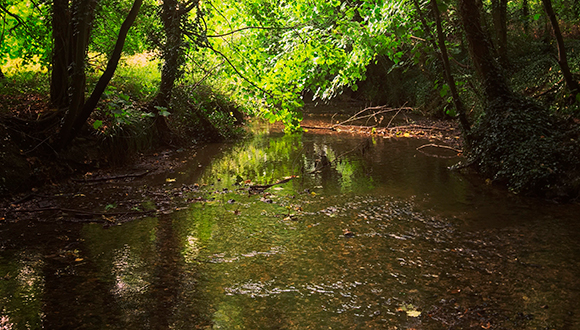Mon, 09 November, 2020
Mental well-being: The surprising effects of Nature on our mood
We know all about challenges and adapting to circumstances, this year more than any in recent memory. But at this particular time of year, as the days get shorter and the nights get longer, many of us can start to feel a little sadder or under-motivated than we would normally be.
Also synonymous with this time of year and the reduced hours of daylight is the likelihood that we are spending less time outdoors in nature. But it is that environment that could help us start to feel better.
Naturalist and author, Emma Mitchel like many of us has suffered from server anxiety and depression in the past, but she has found a remedy in nature, backed up by scientific evidence, which can help us all cope better. And it costs nothing.
She presented her 5 top tips on BBC Autumn Watch.
Get out and enjoy nature with these 5 tips:
With the coming of autumn and forms of natural light reducing, we all can start to feel sluggish. Some of us even start to have symptoms of depression.
Mental illness still struggles to be accepted by some as actual illness, an attitude that can have very dangerous consequence.
If you are feeling low or anxious, there is real, scientific evidence coming out that if we get into nature, we are alter our mood for the better. And if you already love being outdoors, its a win win!
 Botanical details found on a simple leaf. Photo: NSIRC / James Brookman
Botanical details found on a simple leaf. Photo: NSIRC / James Brookman
-
Walk among trees and plants for 15 minutes
By being in this environment we start to inhale chemicals called Phytoncides and our circulatory system responds by reducing blood pressure and lowering our heart rate. Not only that, but these Phytoncides also lower our levels of Cortisol, a stress hormone that can cause anxiety and depression.
-
The power of fractal shapes in nature
When you are out amongst trees and plants, you are likely to see the veins on the back of a leaf, or other botanical details and this can actually make you feel more relaxed. For example, when you look at a commonly found fern leaf, you’ll see it’s fractal shape (a geometric motive that repeated on different scales but with the same structure). Other examples are snail shells and a tree with no leaves seen against a sky.
The whole neurological sensation of an observation like this is a lot like listening to music, in the way some songs can make you feel relaxed, and it’s the same part of the braining that’s lighting up when you see fractals.
 Wintry tree by Little Abington church. Photo: NSIRC / James Brookman
Wintry tree by Little Abington church. Photo: NSIRC / James Brookman
In one handful of soil can be billions of microorganisms, but there’s one, in particular, that does absolutely no harm to humans and it’s Mycobacterium Vaccae. It’s commonly found in most soils including your back garden, compost and forest leaf mulch, and when you inhale just tiny bits of its cell wall, a group of neutrons in our brain release Serotonin. This is one of the positive neutron transmitters that are responsible for mood, and this is exactly how anti-depressants work. So it’s like we all have access to our own pharmacy in the ground, either find yourself a nice piece of woodland floor for a sniff or plant some veggies.
-
Spending tranquil time near water
The science tells us that it doesn’t really matter where the water is. So if you live in a very urban setting like a city, you might want to look for a water fountain, whereas in a green space you might choose a river, brook, or a pond in your back garden.
Whatever the source its the sound of water that has been shown to decrease Cortisol production. That means the stress hormone is falling away and we can feel more relaxed.
When a person is undergoing an MRI scan, showing them videos of water produces activity in the brain that show signs of stress reduction, their mood moving away from ’fight or flight’ and towards rest and relaxation.
So whether its plants, the water itself or some trees that you are concentrating on, there is very little other activity going on, and that means it’s like a break for the mind, and holiday for our neurons.
 River Granta, wild and winding by Granta Park. Photo: NSIRC / James Brookman
River Granta, wild and winding by Granta Park. Photo: NSIRC / James Brookman
-
The beautiful benefit of Birds
A walk in nature wouldn’t be complete without spotting some wildlife and it’s usually birds that we can see. When you spot a bird you can feel quite excited and there is some science to support that. Especially when we see something really beautiful or find something we’d been looking for, we actually release Dopamine, one of the positive neurotransmitters that lifts our mood and feel motivated.
So if you are feeling low in this coming season or the next, we hope these simple tips can help you find comfort, and feel a little better by being in the natural world.
......
Other links that may be of interest: